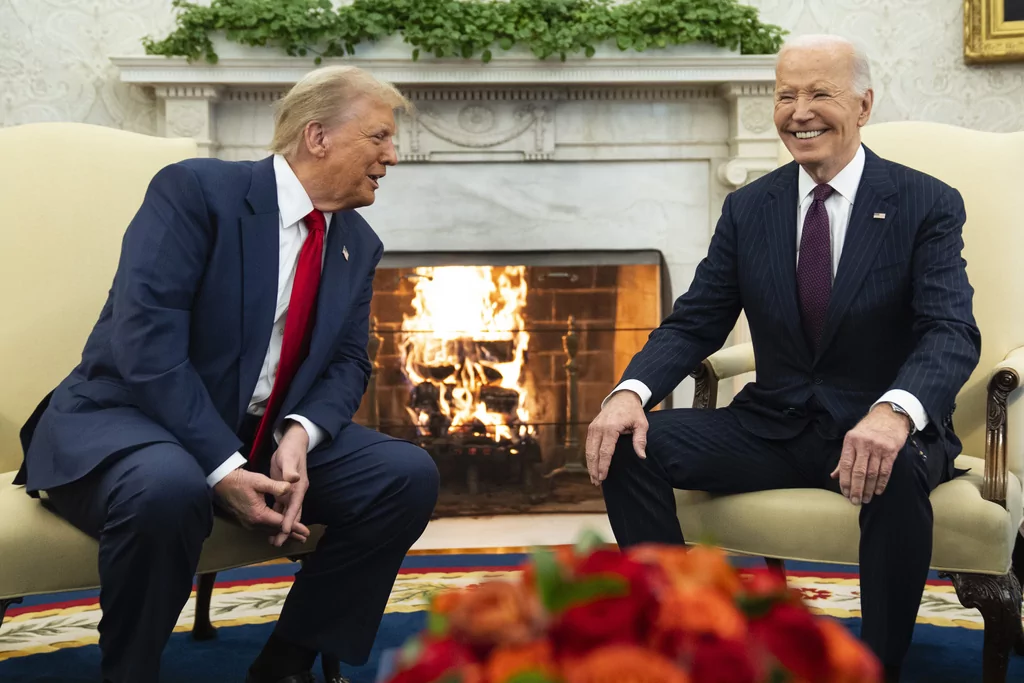

President-elect Donald Trump has promised to fundamentally remake the Department of Education in his second term, a move which, if achieved, will have a significant impact on initiatives President Joe Biden put into place to forgive student loan debt.
During his own 2020 campaign, Biden vowed to forgive tens of thousands in debt for every student loan borrower.
TRUMP CABINET PICKS: WHO’S BEEN TAPPED TO SERVE IN THE PRESIDENT-ELECT’S ADMINISTRATION
His actions through the first 46 months of his presidency fell far short of that benchmark, thanks to a 2023 decision from the Supreme Court. But he has managed to extend billions in relief for millions of student loan borrowers, including extending forgiveness to public servants, low-income borrowers, borrowers with disabilities, or borrowers who were defrauded by their schools.
The Biden administration also proposed a new Department of Education rule in October, just one week before the 2024 election, that if “finalized as proposed,” would allow Secretary of Education Miguel Cardona to “waive up to the entire outstanding balance of a student loan when the department determines a hardship” that could drive a borrower into missing payments or defaulting on their loans.
Trump has yet to say how he will handle Biden’s student loan initiatives, and the Trump team has not responded to inquiries on the subject. Trump has yet to name his nominee for secretary of the department, which the president has wanted to eliminate.
However, Biden’s signature student loan forgiveness vehicle, the Saving on a Valuable Education program, is already on the chopping block with Republicans. Enrollees in the SAVE plan see their monthly minimum payments pegged directly to household income, allowing borrowers earning less than $32,000 annually to make $0 monthly payments. The SAVE plan also caps a loan repayment period at 20 years for undergraduate loans and 25 years for graduate assistance, as long as a borrower continues to make adjusted monthly minimum payments.
The SAVE program is the target of lawsuits filed by seven Republican state attorneys general. If any of those suits produce unfavorable rulings for the Biden administration, then the 8 million program enrollees could see their monthly payments rise by up to nearly 600%, according to an analysis from The Los Angeles Times.
HOW TRUMP COULD IMPACT THE PENTAGON
Though Republican lawmakers widely opposed Biden’s student loan forgiveness initiatives, a number of leading conservative thinkers, including Tucker Carlson, challenged then-President Trump to tackle the student loan crisis.
“Student loans are the biggest source of personal debt in this country, more than car loans and credit card bills. That’s a staggering amount of debt. It’s enough to distort and cripple the U.S. economy. It’s enough to stunt the life prospects of an entire generation of young people,” Tucker Carlson wrote in a 2019 op-ed for Fox News. “If you’re wondering why the majority of Americans under 30 say they prefer socialism, debt is a major reason. Student loans are killing them, and they never go away.”
However, Carlson argued that Congress must take on the predatory student loan industry by forcing schools to co-sign loans along with borrowers, making them liable for any missed payments or defaults, and capping the total amount of loans for student loan borrowers, as opposed to forgiving any current debt held by borrowers.
Legislation sponsored by Rep. Virginia Foxx (R-NC) introduced earlier this year follows on that line of thinking and could provide a blueprint for Republican efforts to address the crisis in Trump’s second term in office.
Trump’s vow to completely shutter the Department of Education likely won’t come to fruition, as it would require 60 votes in the Senate to pass.
But the president-elect could, without congressional authority, begin shifting Education Department programs off to separate agencies. During his first term in office, Trump suggested re-housing Education under the Department of Labor, and multiple Trumpworld insiders told the Washington Examiner that, under the president-elect’s possible federal restructuring, the Department of Treasury could absorb Education’s loan programs.
As for any specific plans to take on Biden’s forgiveness programs themselves, experts remain split.
American Enterprise Institute fellow Michael Brickman, an Education Department official during Trump’s first term, suggested that, without having to act through executive authority, Trump could simply wait for pending litigation against Biden’s programs to conclude.
“Some of the first victories for the new administration’s education policy may be just them sitting on their hands and waiting for some of these policies that never were legal in the first place to be struck down by the courts,” Brickman told the Washington Post.
Scott Buchanan, executive director of the Student Loan Servicing Alliance, said that Trump might similarly decide not to touch Biden’s changes in a second term.
CLICK HERE TO READ MORE FROM THE WASHINGTON EXAMINER
“I could see a return to what was in place under the previous Trump administration,” he said. “They could say, ‘Listen, we didn’t do anything with the repayment plans then, so there’s no need to now.’”